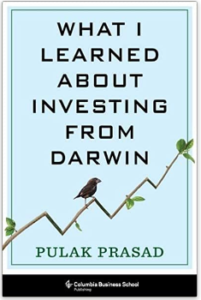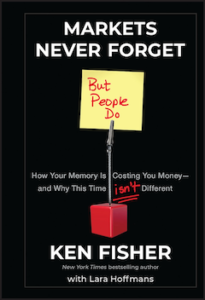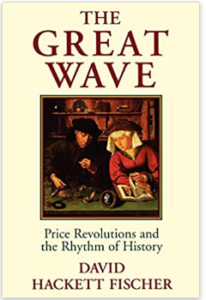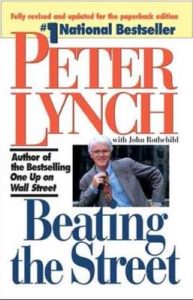In the first chapter of 100 to 1 in the Stock Market (1972), Thomas Phelps writes: “Maybe you don’t have ten thousand dollars? Many people don’t.” … “Sorry, there is no hope for you. I have it on the word of Andrew Carnegie. ‘You want to know if you will be rich,’ he said, ‘the answer is, Can you save money?” Note that $10 thousand when Phelps’ book was published is equivalent to about $70 thousand in inflation-adjusted dollars today. While that is not considered much money in the grand scheme of things, Phelps’ book speaks to individual positions in specific stocks, for the long run, instead of total net worth.
The point that Phelps and Carnegie made was similar to the one popularized in the best seller The Millionaire Next Door (1995): Spend less than you make and you will be rich. The same principle is well discussed by Michael Kemp, and Australian fund manager and author of the fantastic book Uncommon Sense: Investment Wisdom Since the Stock Market’s Dawn (2016). There is no lack of good advice on this front, yet like Will Rogers famously quipped in one of his best quotes from the 1930s: “Too many people spend money they haven’t earned, to buy things they don’t want, to impress people they don’t like.”
The problem of how to save isn’t the problem Victori aims to address. There are plenty of people out there to help with that, usually for a fee or to sell you a product. A friend once asked me to study a collection of savings plan statements from his wealth manager, and it shocked me. Not once over the years, did it separate his cash contributions from the net return achieved on his capital. It’s true that Victori could help people with small savings become big savers by growing with them as they earn and save over the decades, but that’s not how we aim to make dreams come true. Our goal is to deliver substantial wealth creation by finding Outstanding Companies and letting them work for us.
By design, we tend to come in after the capital has been accumulated. We cater to the more sophisticated, often older – but not always – saver who has tucked away or inherited enough capital to enable them to achieve their dreams by compounding at above-market rates over the long term. We have also gained traction with folks who have individual retirement accounts (IRAs) that they do not plan to touch for a decade or longer. IRAs are great not only because of the deferred tax feature, but because they force the investor to think long term. Tragically, though, many investors don’t pay enough attention to their IRAs and they leave it in the hands of people or funds that fail to keep up with the market. While compounding at any positive rate for long enough can help one build wealth, a 17% annualized return, for example, turns $1 into $100 in 30 years, while a 6% return turns $1 into only $6 in as many years. In other words, it can make a huge difference how you choose to invest your IRA!
I cannot be clearer about this. The bigger the account size, and the longer the time, the bigger the dream we can deliver. Someone worth $5 million who allocates $100 thousand to Victori as one out of ten positions in a highly diversified portfolio, with low equity exposure, will not receive what we aim to deliver. Someone worth $600 thousand who gives us $500 thousand for 20 years stands a much greater chance. While putting a large percentage of one’s wealth in the hands of a single manager might seem risky, I cannot think of a better and easier and safer way of making dreams come true than putting one’s precious savings in Victori for the long-term so that we can then let the best companies in the world work for us.
But why wouldn’t we let the little guy open a $10 thousand account in Victori and over time, keep contributing to this account until someday it reaches a dream-making size? That is certainly something we can choose to do, but it is not as simple as it might sound. While there are exceptions, I am willing to bet that most people who are in a position to devote only such a small amount, are not dream seekers. They are also highly unlikely to be direct customers of Victori. They will be more similar in profile to the customers who lost money with Fidelity’s Peter Lynch even though he put up one of the industry’s best career records (29% annually after fees).
The ability to democratize investing faces a formidable obstacle because the masses are in the hands of intermediaries such as financial advisors, wealth managers, private bankers, and increasingly, software solutions. What most of these people and robots sell is financial planning for the purpose of achieving financial peace of mind instead of dreams. They are not in the business of generating outstanding returns, which is the hardest task. Without enough sustained return, capital cannot grow at the rate needed to make dreams come true. And sadly, even when these returns do get delivered, the very presence of an intermediary with a diversification mindset can kill the dream. I am in no way saying wealth managers don’t add value. In fact, they are critical in helping people reach their goals and preserve wealth. But investing is not really about maintaining peace of mind, and as I have written before, single-digit compounding will not deliver what we are in this for.
The bottom line is that plans, presentations, brochures, and even great macro calls, do not by themselves make dreams come true. What is required is courage (to concentrate), fortitude (to see it through), knowledge (that comes only from deep work), and patience. As Phelps says in his book, patience is the rarest of these virtues. Either way, because our purpose is to make dreams come true, we are focused on large commitments from true believers with the right profile to stay committed for the long run. We can’t solve all of humanity’s problems, but we can pick our investors carefully and take care of their savings like it is our life’s purpose. Because it is. Non-believers need not apply.










